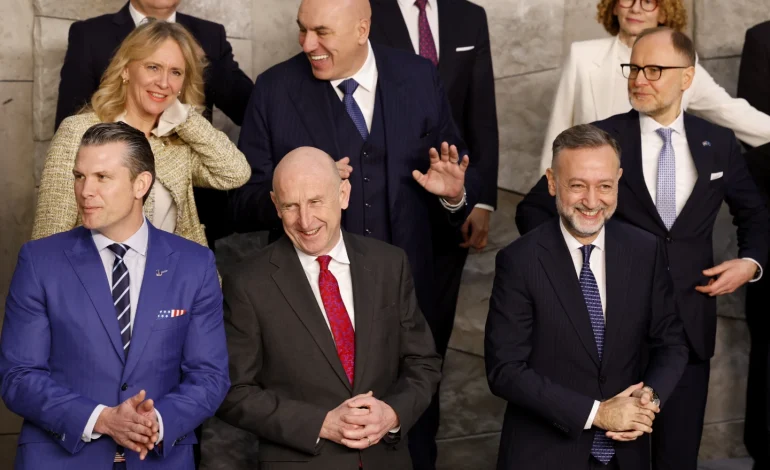A declaration this week by US Defense Secretary Pete Hegseth has sent shockwaves through NATO, reigniting long-simmering anxieties about the alliance’s purpose and, crucially, the reliability of American commitment, The Associated Press reports.
Hegseth’s address, delivered to a gathering of Ukraine’s Western backers, amounted to a stark ultimatum: the era of unquestioning US support for European security is over, and Ukraine should not anticipate the return of all its territory, nor acceptance into NATO.
Hegseth’s forceful pronouncements, widely interpreted as a shift toward a more “America First” approach, have left many questioning the very foundation of the 75-year-old alliance. While career diplomats in Brussels attempt to downplay the rift, the reality is clear: the United States, under its current leadership, prioritizes domestic concerns and perceived threats to its own borders above the endless quagmire of European security.
Trump’s Shadow Looms Large
This recalibration of priorities is, of course, not entirely new. The rhetoric echoes the sentiments of President Donald Trump, who repeatedly criticized NATO allies for failing to meet their financial obligations and questioned the value of the alliance to US interests. While Trump’s approach was often characterized as brash and undiplomatic, it undeniably forced a much-needed conversation about burden-sharing and the long-term sustainability of the transatlantic alliance.
Now, with Hegseth articulating a similar message, it appears that the underlying concerns about American resources being stretched too thin remain valid. Hegseth’s statement that the US faces “consequential threats to our homeland” and must focus on border security has resonated deeply with Americans weary of foreign entanglements.
Ukraine: Bottomless Pit?
The implications of Hegseth’s words for Ukraine are particularly grim. His assessment that Ukraine will not regain all its territory and will not be granted NATO membership where Russia consolidates its gains. Furthermore, the refusal of US involvement in any future peacekeeping force signals a reluctance to commit American lives or resources to what some see as a never-ending conflict.
While European allies have stepped up their military aid to Ukraine, questions remain whether this is a sustainable model. With economies facing increasing strain, there are growing fears that the commitment to arming Ukraine may waver, leaving the country vulnerable to further Russian aggression.
NATO’s Future Uncertain
Hegseth’s speech has exposed the inherent fragility of an alliance predicated on unquestioning US leadership. While NATO Secretary-General Mark Rutte will undoubtedly try to paper over the cracks, the fact remains that the most powerful member of the alliance has signaled a shift in priorities.
The question now is whether NATO can adapt and evolve in a world where American leadership is no longer guaranteed. Or will Hegseth’s pronouncements mark the beginning of the end for an alliance that may have outlived its usefulness in a multi-polar world? Only time will tell.








